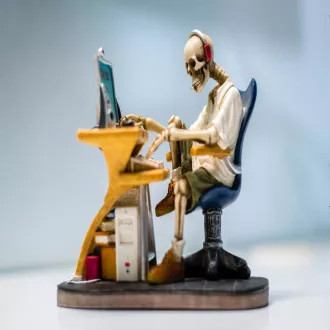Transcription Mediation and Arbitration
Mediation and arbitration are two valuable mechanisms for resolving conflicts with the help of a neutral third party.
Although both involve a third party, their roles and the results obtained are very different.
Understanding these differences is crucial to choosing the right tool according to the circumstances of the conflict.
Mediation: facilitation and mutual understanding
Mediation is a process in which a mediator, who is a neutral person, intervenes to facilitate communication between the conflicting parties.
The mediator's role is not to judge who is right or what is the correct solution, but to make sure that each party is heard and understood correctly by the other.
The mediator usually begins with individual meetings to understand each person's positions, objectives and perspective.
He or she may then arrange a joint meeting or act as a go-between, relaying messages between the parties.
This "shuttle diplomacy" helps ensure that the interpretation of messages is as accurate as possible, avoiding the filters of distortion and generalization that often cause conflict.
Mediation is a powerful tool in high-level labor disputes.
It is especially useful when the outcome of the conflict is important to both parties, but they have not been able to reach a solution on their own.
In large organizations, there are often trained mediators, but certified local mediators can also be found to help resolve the situation.
Arbitration: an external, binding judgment
Arbitration is different from mediation.
In this case, the arbitrator not only hears the perspective of the parties, but also makes an informed judgment and a final decision as to what the resolution should be.
By agreeing to arbitration, the parties also agree to abide by the arbitrator's decision.
Arbitration is an effective tool when the parties agree that it is more important to reach a resolution than to impose their own point of view.
It is often used as a last resort when other avenues, such as mediation, have failed and the only alternative left is legal litigation.
Judges, in fact, are the ultimate arbitrators in the legal system.
Who can be mediators or arbitrators?
Both tools, when in the hands of trained professionals, are very effective in resolving conflicts.
However, with a little thought and planning, a non-professionally trained person can ac
mediation and arbitration




